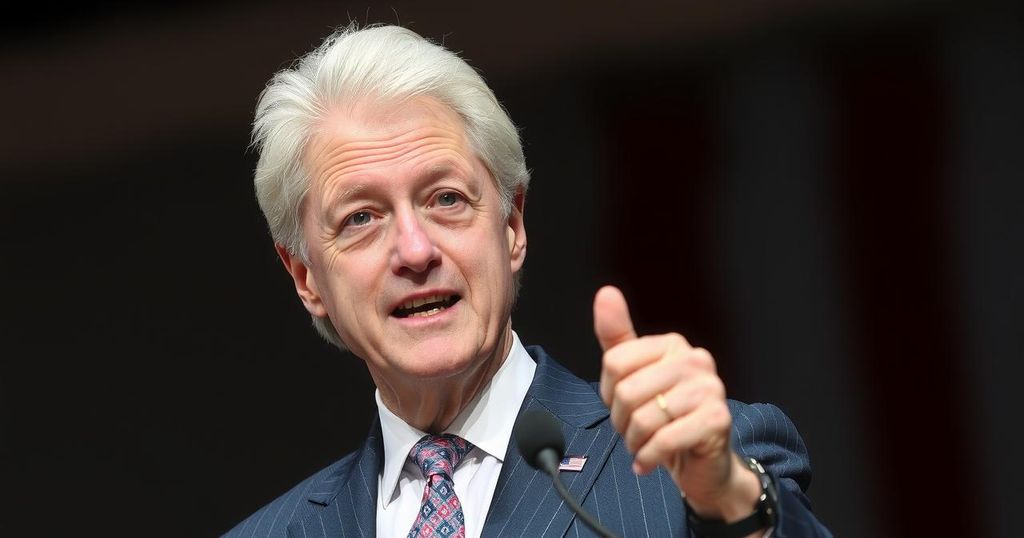Bill Clinton Discusses Democratic Challenges, Biden’s Pardon, and Regrets on Peace
During the DealBook Summit, former President Bill Clinton reflected on the Democratic Party’s electoral challenges, highlighting the chaos following President Biden’s exit and Vice President Harris’s difficulties in voter outreach. He defended Biden’s pardon of his son while expressing regret over missed peace opportunities in the Israeli-Palestinian conflict, underscoring the importance of character among politicians and the need for coherent political strategies.
Former President Bill Clinton addressed various issues facing the Democratic Party and the broader political landscape during a recent discussion with Andrew Ross Sorkin at the DealBook Summit. Reflecting on the Democrats’ challenges following the presidential election, Clinton attributed part of their difficulties to insufficient planning following President Joe Biden’s withdrawal from the race. He remarked that Vice President Kamala Harris struggled to establish her identity among voters due to a lack of time to introduce herself adequately.
Clinton also expressed his views on Biden’s decision to pardon his son, Hunter Biden. He suggested that while Biden did not handle all aspects of the decision ideally, he supported the pardon, emphasizing the different treatment Hunter received due to his father’s position. Additionally, Clinton shared insights on the Israel-Palestine conflict, lamenting the missed peace opportunities during his presidency. He recounted his experiences with the failed peace talks in 2000 and urged younger generations to understand the significance of these historical moments.
Drawing on his past, Clinton emotionally acknowledged his regrets over these peace efforts, remarking on the lost opportunities for resolution. The discussion also touched on D.E.I. (Diversity, Equity, and Inclusion) policies and the character of politicians, indicating a broader concern for the ethical standards in politics today. Overall, Clinton’s reflections highlighted the complexities and regrets that accompany political leadership and decision-making.
Bill Clinton served as the 42nd President of the United States from 1993 to 2001 and remains an influential voice in American politics. His insights on political events and his experiences during his presidency give him a unique perspective on current political challenges. The context of the recent presidential election and its aftermath provides a backdrop for Clinton’s comments, particularly regarding the Democratic Party’s strategies and the importance of character in political figures. The discourse around D.E.I. policies also reflects a significant and ongoing societal conversation in the United States.
In summary, Bill Clinton’s discussion at the DealBook Summit encapsulated key issues facing the Democratic Party, including strategic missteps following electoral setbacks and the personal and political complexities of leadership. His reflections on peace processes in the Middle East and ethical standards in politics emphasize ongoing challenges that require careful consideration and innovative solutions.
Original Source: www.nytimes.com




Post Comment